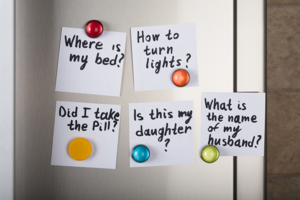Alzheimer’s News: Important Updates from the 2019 Alzheimer’s Association Facts and Figures Report

The report is in: Learn the latest Alzheimer’s news, facts and figures here.
2019 Facts and Figures Report, and with a staggering 5.8 million Americans presently diagnosed with the disease – including one out of every ten older adults – it is essential for all of us to be familiar with the latest innovations in research and treatment plans.
Based on the report, the number of Americans diagnosed with Alzheimer’s is expected to skyrocket from 5.8 million in 2019 to an anticipated 13.8 million in 2050. And even while the effects are greatest on the elderly, the disease begins to produce modifications in the brain a full 20 years or more before signs and symptoms are observable.
If you are among the countless family members providing care for a senior loved one with Alzheimer’s, you are well aware of the investment in time required: along with other family caregivers, adding up to 18.5 billion hours in 2018 alone. The truth is, 83% of dementia care is provided by family and friends. And the effect on a caregiver’s health is substantial, with as many as 60% revealing emotional stress and nearly 40% suffering from physical stress.
Risk factors have also been updated in this year’s report, and include:
- Age: Unsurprisingly, risk increases considerably as we age, from as small as 3% in the 65 – 74 age-group, to 17% in those ages 75 – 84, to an astonishing 32% for individuals age 85 and older.
- APOE gene: Of the three forms of the APOE gene (e2, e3, and e4), which carries cholesterol in the bloodstream, the e4 form is linked to the highest occurrence associated with the disease.
- Family background: Those with one first-degree relative (parents, siblings) have a much higher risk for developing Alzheimer’s, and the risk increases when shared lifestyle and environmental factors are at play (for example. unhealthy eating or obesity).
Of significant value is the finding that even though healthcare providers are encouraged to routinely measure cognitive functioning for all seniors, only 16% of people over age 65 report having a routine evaluation, and more than 50% have never been given an evaluation at all – regardless of the fact that 94% of doctors noted the necessity of such an evaluation.
Per Joanne Pike, Dr.P.H., chief program officer for the Alzheimer’s Association, “Early detection of cognitive decline offers numerous medical, social, emotional, financial and planning benefits, but these can only be achieved by having a conversation with doctors about any thinking or memory concerns and through routine cognitive assessments.”
Responsive Home Care continues to be dedicated to following the latest advancements in Alzheimer’s disease, and to provide the excellent, highly skilled care which allows for the greatest possible quality of life at all times for everyone with dementia. Give us a call at 954-486-6440 to get more educational resources pertaining to Alzheimer’s, or to learn more about our specialized senior home care in Fort Lauderdale, FL and the surrounding areas.
